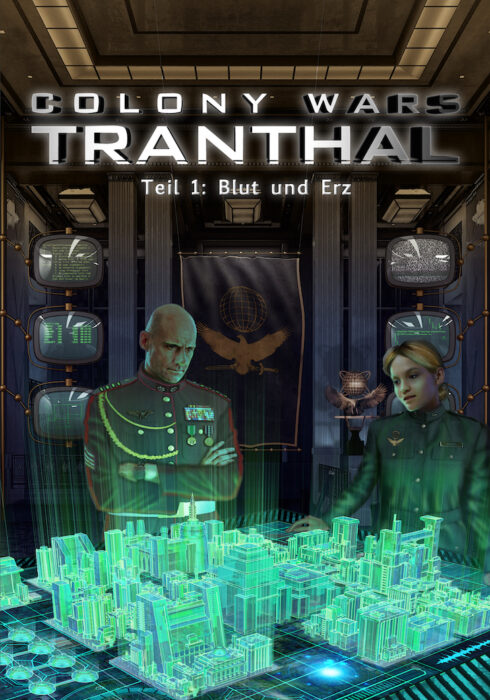Description
"Is big tech a billion-dollar business? Of course it is! But the question above all is: Who is trading our data? Who is editing our identities and changing our past as we speak? Who is providing votes - and who is actually voting for whom?"
Stefan Boucher
Brief Introduction:
In the fast-paced world of high-tech and financial investors, former game developer Rico is a poster boy for innovation and progress. He is also respected as a lecturer on game metrics. His latest development is garnering worldwide attention because recorded data traces from users can be used to generate virtual likenesses of people. Investors bid staggering sums, ignoring protests against a technology that analyzes people more comprehensively than ever before. The growing criticism motivates Rico's student Liz to boldly venture into the deep shadows of his past.
Category: Near-Future Sci-Fi / Fantasy, Thriller, Action
Key words: Games, Retro Gaming, Cold Case, Big Tech, Critical Media, Identity theft, Atari
Synopsis
1999: While the German capital is preparing for the year 2000 and the public is discussing the dangers of Y2K, school friends Melanie Bieler and Rico Darburg have programmed The Colonists - the most successful computer game of the 90s. Companies from Russia, England, and France are vying for the publishing rights of the small Berlin development studio. A dispute breaks out between Rico and Melanie over the question of which partner to sign contracts with. On the trip to London to an English publisher, Melanie disappears without a trace. Rico is now able to get his way and gives the rights to France. But Melanie's fears come true:
No sooner is the game on the market than Rico is ousted and replaced by the in-house developers in Paris. Police investigating Melanie's disappearance are unsuccessful, and Melanie's family falls apart. Rico, meanwhile, never gives up the search for Melanie ... even though some rumors won't go away.
More than 20 years later. Present: Rico Darburg is a lecturer in game metrics and head of development at Tribitium Designs, a Berlin start-up that is constructing the bridge from today's Web 4.0 standard to Web 6.0. Connecting brains to technology and real-world linkage through emotion and analysis is his passion and a billion-dollar business. The presentation of a new generation of computer chips, which for the first time can process technical and biological signals simultaneously and operate with unprecedented speed and computational depth, succeeds brilliantly. Investment commitments multiply and new partners emerge: more potent, more powerful, and more unscrupulous than their previous main investor, Triple-17.
As a star of the capital's developer scene, Rico therefore not only attracts the interest of business and politics, but also arouses opposition: a pandemic-fighting app developed on behalf of the federal government illegally accessed millions of data records. Due to the government's intervention, this scandal did not reach the wider public. However, new chip technology from Tribitium Designs now promises to break down the barriers between technology and biology. People are fearful of implants that provide biological Internet connectivity. The press smells headlines with which it can increase its declining circulation. International investors entice him with money and promises. The sudden malfunction of the NeurE-motion, a headband designed to analyze and store brainwaves, damages Rico's brain, causing visions that allow him to relive past situations in detail. Each new test run of the device is fraught with great danger, which Rico nevertheless takes on.
His student Liz wants to analyze the Colonists' old program code for her thesis. Rico denies her access, but Liz hacks into the code. Behind elaborately hidden protective systems, she suddenly finds messages that Melanie left there shortly before she disappeared. Messages that today put Rico in need of explanation and Liz herself in mortal danger. And they force him to deal with himself, with people from the past, and above all with his own memories, which his invention flushes back to the surface ...





